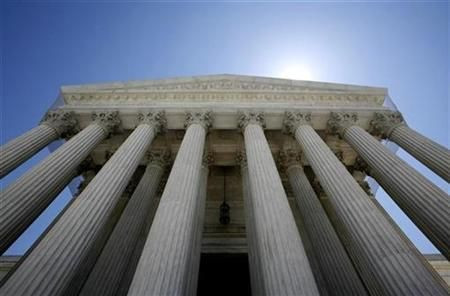Stanford-Roche legal battle to decide critical intellectual property issue

A case that came up for hearing before the U.S. Supreme Court, involving Stanford University and Swiss pharmaceutical giant Roche, is expected to clarify a landmark intellectual property rights law - the 1980 Bayh-Dole Act, which lays down the rules for grant of patents for federally funded inventions, and allows universities to retain the rights to research funded by federal grants.
In this particular case, Mark Holodniy, professor at the Stanford School of Medicine developed a technology using polymerase chain reaction (PCR) assays, which has since been used to develop a lucrative AIDS Test.
However, the technology was developed while Holodniy was a visiting scientist at the Emeryville-based Cetus Corp., where he worked on PCR and signed a visitors' confidentiality agreement, supposedly signing away Stanford's rights to patents over anything that was developed as a result of this collaboration.
Cetus later sold the line of business to Roche, which now sells the HIV test kits based on Holodniy's technology.
The University argues that the Bayh-Dole act restricts Holodniy from assigning the patent rights to Cetus as it is Stanford that owns the title to the inventions under the statute.
The federal government, the Association of American Universities, the American Association for the Advancement of Science, dozens of research universities and the National Venture Capital Association have reportedly sided with Stanford and filed briefs on its behalf. On the other side, more than 25 organizations, private companies, and individuals have also submitted amici curiae, or legal opinions, to the court one of which points out that if patent rights are given to Stanford, it could prevent the invention from being used for larger public benefit.
There is also lot of money at stake here; although Stanford has said that it is not interested in the substantial royalties that would accrue from the patent, the pharma company evidently thinks otherwise, alleging that the University is driven by monetary gain rather than questions over clarity of title.
The Court is expected to make a ruling by July.
© Copyright IBTimes 2025. All rights reserved.





















